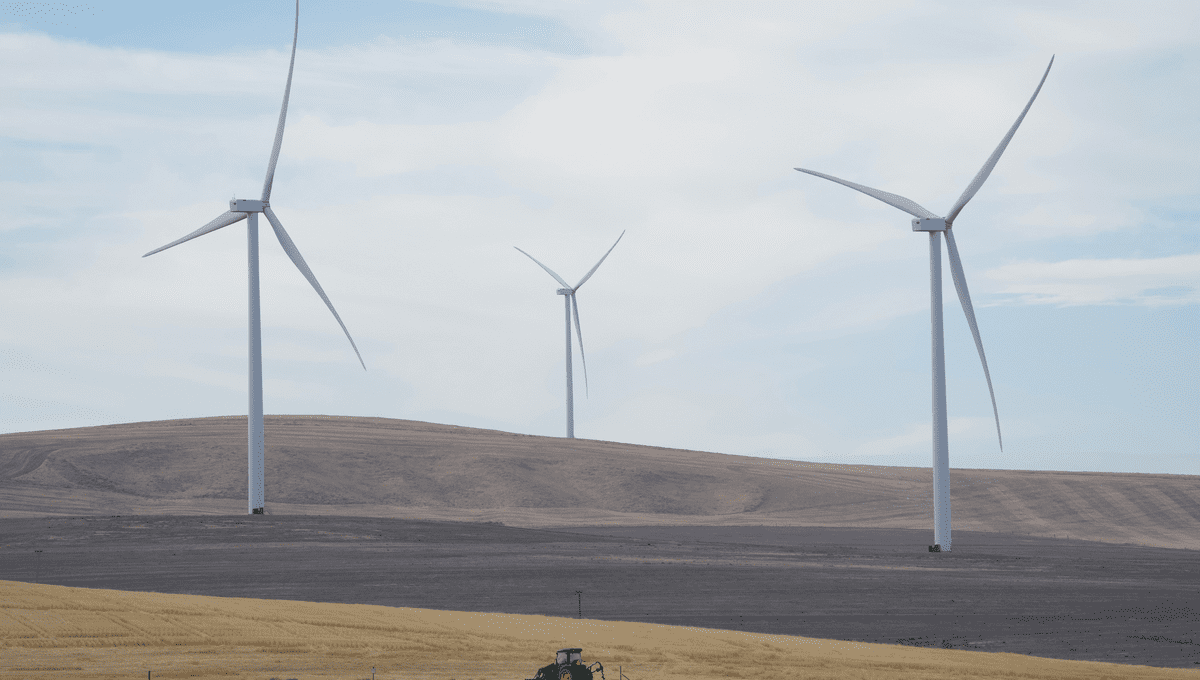
The opening of Wheatridge Renewable Energy Facilities marks the first time utility-scale solar, wind and batteries have been combined at one site for reliable electricity production in the United States. It won’t be the last. The project is currently mostly a wind farm with batteries and solar attached, rather than an equal partnership triple-threat, but future plants will include more even combinations.
Costs for wind and solar power have declined so dramatically they are now the cheapest forms of electricity production per unit of energy in most locations, held back only by their inability to operate 24/7.
Theoretically, batteries can fix that, but currently, most large-scale batteries are suited to operate at full power for four hours or less – not enough to last a night, let alone several days of low wind. Combining multiple power sources, with batteries to cover the gaps, represents a possible solution, but it’s been slow to take off in America.
Consequently, the Wheatridge site in Oregon marks a significant milestone. Its 300-megawatt wind farm is far from America’s largest (that title currently goes to California’s 1,550 MW Alta Wind Energy Center) but it’s enough to meet the electricity needs of about 60,000 Americans. Along with the wind, Wheatridge has a 50 MW solar plant and 30 MW of battery capable of operating for four hours at full power (ie 120 MWH storage).
Wheatridge is located in northern Oregon and will help replace the 450 MW Boardman Coal Plant, the last of its kind in Oregon, which was shut in 2020 and demolished this year.
“Bringing wind, solar, and energy storage together at one site is quite a significant moment for renewable technologies,” said Rebecca Kujawa of major owner NextEra Energy Resources in a statement. “These facilities generate low-cost, homegrown energy and will provide millions of dollars in additional tax revenue to Morrow County over the life of the project.”
The project will help Oregon meet its goal of an 80 percent reduction in energy emissions from retail electricity by 2030.
At many locations winds are most consistent either at night or in the late afternoon when decreasing sunlight struggles to match peak power demand. In either case, combining wind and solar makes for more even production through the day/night cycle. Relatively small amounts of battery storage can fill the gaps, as periods with neither sun nor wind tend to be short.
A quirk of government policy has been part of the reason triple plants like this have been less successful in the United States than elsewhere. “Energy storage was only incentivized under the tax code when it was associated directly and solely with a solar project,” Gregory Wetstone of the American Council of Renewable Energy told Utility Dive.
Changing this so that wind farms can also participate was one of the less noticed features of the Inflation Reduction Act passed in August, but it’s one that could unleash many more projects like Wheatridge.
Source Link: America’s First Solar-Wind-Battery Combined Power Plant Has Opened